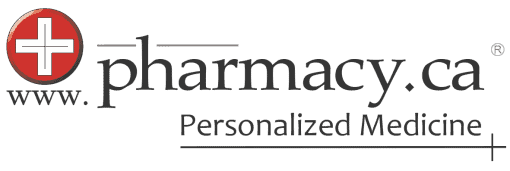Addiction Management
Addiction Management
At Pharmacy.ca, we provide a range of medications, resources, and support to help you to manage your health. We have a long history of helping patients to manage their substance use. We have extensive experience in assisting clients across a broad range of services, including:
- Alcohol addiction support and treatment
- Smoking cessation
- Opioid substitution therapy
- Naloxone kit training
- Tapering off medications
- Reimbursement support
- Coordination of care and support services
Please reach out to us at 1-800-727-5048 or contact us to discuss how we can work together to assist you to reach your goals!

Addiction Information
Addictive disorders are a group of disorders that can cause physical and psychological damage. Treatment is essential to break the cycle of addiction–as a chronic disease, addiction is often difficult to treat and usually requires on-going care.
Substance abuse can cause impaired performance at school and work, and have negative effects on social, recreational, or other important areas of life. The first step towards recovery is acknowledging that substance use has become a problem and is decreasing a person’s quality of life. The good news is that once an individual recognizes the negative impact of a substance on their life, a wide range of treatment options is available!
Several treatment options are available, and most people experiencing addiction will receive a combination of medical and behavioral approaches. No one treatment for addictive disorders works for every person, so instead, treatment plans for addictive disorders are usually designed to meet the needs of the individual patient. Treatment options for addiction depend on several factors, including the type of addictive disorder, the length and severity of use, and its effects on the individual. Common interventions might involve a combination of inpatient and outpatient programs, psychological counseling, self-help groups, and medication. Doctors will also treat the other physical and mental complications that can exist with addiction—for example, liver disease in a person with alcohol use disorder, or respiratory issues in people with addictions to smoked substances.
For many people, treatment may last for the rest of their life. They may need to abstain from the substance on a life-long basis, which can be difficult.
Medical (pharmacological) interventions for the substance use disorder itself are most valuable in cases in which there is dependence, and when they are targeted at the following areas of patient management:
- withdrawal syndromes
- prevention of relapse and maintenance of abstinence
- reduction of harms associated with illicit drug use by prescribing a substitute drug or drugs (e.g. methadone maintenance treatment)
- prevention of complications of substance use
Goals should be set and agreed upon between the patient and prescriber.
Alcohol addiction support and treatment
Alcohol, also known as ethanol, is a legal substance known for its psychoactive properties. It is produced by fermenting or distilling produce or grains. Fermented beverages include beer, cider, wine, and flavored purified alcohol. Distilled beverages, often called spirits, include products such as vodka and whisky.
Although legal, the consumption of alcohol does have a risk of adverse health and social consequences related to its intoxicating, toxic and dependence-producing properties. To avoid these harms, Canadians who choose to drink should follow Canada’s Low-Risk Alcohol Drinking Guidelines (https://ccsa.ca/canadas-low-risk-alcohol-drinking-guidelines-brochure).
People with alcohol use disorder may use the following medications to assist in their efforts to stop or help control drinking:
Naltrexone: prevents the action of opioid receptors in the brain that produce rewarding and euphoric effects when a person consumes alcohol, thereby reducing the risk of relapse. While not effective for everyone, it may have a considerable impact on abstinence for some people.
Acamprosate or Campral: may reduce long-term withdrawal symptoms, including sleeplessness, anxiety, and a general feeling of unhappiness known as dysphoria. This medication may be more beneficial for people with severe substance-related and addictive disorders.
Disulfiram or Antabuse: an alcohol avoidance medication, it makes a person physically uncomfortable or ill if they drink alcohol while on therapy As such it acts as a deterrent for people who are highly motivated towards recovery. Recent studies suggest that it may also prevent the triggering of the brain’s reward center that is caused by alcohol consumption.
Doctors and rehabilitation specialists may prescribe other medications to address other possible mental health conditions (such as depression and anxiety) that may be either or both a cause or effect of substance-related disorders.
Smoking cessation
Our pharmacists have all completed specialized nicotine addiction training, and are ready to assist those who wish to either reduce or quit their nicotine use.
Smoking can have several negative impacts on health, including increased risk for cardiovascular disease, lung disease, and increased risk for a variety of cancers.
It is encouraging to know that quitting smoking decreases cardiovascular risk–studies show that 1 year after quitting, your risk of heart attack drops sharply. Within 2 to 5 years after quitting, your risk of stroke may reduce to about that of a non-smoker. After 5 years after quitting, your risk for cancers of the mouth, throat, and bladder drop by half, and 10 years after quitting, your risk of dying from lung cancer drops by half.
Using cigarettes or other forms of tobacco that contain nicotine (ex. cigars, pipes, chewing tobacco, vapes, and snuff) can lead to addiction. Nicotine is the key chemical in tobacco products that makes them so addictive.
When you smoke, nicotine is absorbed through your lungs into your bloodstream and then travels–in as little as 10 seconds—to your brain and your body’s organs.
Nicotine has several effects on your body:
- It increases your heart rate and blood pressure
- It constricts your blood vessels, causing the temperature in your hands and feet to drop
- Your brain waves are altered, and your muscles relax
- New smokers will often experience coughing, dizziness, and a dry, irritated throat.
- If you are not used to nicotine, you may also experience nausea, weakness, stomach cramps, headache, coughing or gagging. These symptoms may lessen as you develop a tolerance to nicotine.
Nicotine causes addiction and physical dependence.
- Nicotine causes the release of natural chemicals in your brain that may temporarily make you feel good or energized or more alert and calmer.
- Over time, your body can build a tolerance to some of the effects of nicotine and you must continue to use nicotine to make the effects last.
- If you are addicted to nicotine, you may experience unpleasant withdrawal symptoms if you go without nicotine for more than a few hours. Many people continue to use nicotine to avoid these withdrawal symptoms.
Smoking is also a learned behaviour, causing you to form habits that can be tough to break. You learn to associate things with smoking, such as:
- the pleasant feelings that it brings you
- the temporary relief of worry, tension, boredom, or fatigue
- drinking coffee or alcohol
- eating a good meal
- having a good time with friends
When you stop smoking, nicotine levels in your body drop and you may experience withdrawal symptoms. These symptoms are temporary and are often signs that your body is healing.
Withdrawal symptoms can be difficult to cope with and many smokers may not be able to quit on their first try because they are not prepared. If you know what to expect, you can be better prepared with strategies to manage the symptoms.
Most withdrawal symptoms happen within the first week and are usually gone after 2 to 4 weeks.
Withdrawal symptoms may include:
- dizziness and shakiness
- headaches
- anxiety and irritability
- nervousness and restlessness
- difficulty with concentrating and sleeping
- increased appetite
- slight depression or feeling down
- cravings for a smoke
Other side effects, such as tiredness and coughing, show that your body is in a state of repair and healing.
You may crave cigarettes for months, even after the other withdrawal symptoms are gone. The desire to smoke can be especially strong when you are under stress, although some people crave cigarettes when they are out with friends or when they are simply bored.
Our pharmacists are available to support you to quit smoking! We can provide you with materials designed to assist you in quitting as well as access to smoking cessation education, services, and products. Products range from nicotine replacement products to prescription medications such as bupropion and varenicline.
Opioid substitution therapy
Opioids are a class of drugs that are usually prescribed to treat severe pain. Opioids can create feelings of intense pleasure or euphoria, but they can also lead to addiction and fatal overdose. Opioids are an effective medication when used as prescribed, but they carry a risk of addiction because of their powerful effects.
Opioid addiction involves both physical and psychological dependence. This means that the drug can become so central to the person’s life that the need to keep using them becomes a craving or compulsion, even if the person knows that continuing to use them is harmful.
Cravings and increased tolerance may lead a person to buy drugs on the street or go to more than one doctor to get the same drug. They may smoke, snort, crush or inject the drug in order to feel high more quickly and more intensely. Injecting opioids adds to the danger due to an increased risk of overdose, collapsed veins, and an increased risk of contracting or spreading infections such as HIV or hepatitis by sharing needles. Opioid addiction frequently affects the user’s relationships with family members or friends, and frequently causes the person to neglect their responsibilities at work, school, or in social settings.
When people think of opioid use problems or addictions, they may think of “street” opioids, such as heroin or fentanyl. However, problematic opioid use can also result from taking prescribed opioid medications such as oxycodone, morphine, or codeine improperly, or from taking an opioid medication that was not prescribed for you.
Opioid addiction is defined by a group of signs, symptoms and behaviours that show that a person is both physically and psychologically dependent on the substance. These include:
- using over a longer period, or using more than planned
- wanting to quit or cut down, or trying unsuccessfully to quit
- spending a lot of time and effort getting, using, and recovering from opioids
- experiencing cravings
- failing to fulfil responsibilities at work, school, or home as a result of opioid use
- continuing to use opioids despite the negative social consequences caused by opioid use
- giving up activities that were once enjoyable
- using opioids in dangerous situations
- needing to take more of the drug to get the same effect (tolerance, a sign of physical dependence)
- feeling ill when opioid use suddenly stops (withdrawal, a sign of physical dependence)
- crushing, snorting, smoking or injecting opioids
- running out of prescription medications early
- drawing on many sources for opioids (e.g., prescriptions from two or more physicians, or using both a prescription and street opioids)
- showing signs of opioid intoxication (e.g., nodding off, pinpoint pupils).
Opioid addiction is caused by a combination of physical and psychological factors, including:
- access to opioids, whether from legal or illegal sources
- physical tolerance to opioids
- the need to use increasing quantities
- compulsive use
- withdrawal symptoms.
There are several risk factors for developing opioid addiction, including:
- a personal history of substance use issues involving any substance (including alcohol)
- a family history of substance use problems or addiction
- a history of pre-adolescent sexual abuse
- a history of psychiatric problems.
Opioid addiction treatment usually involves the combination of two approaches:
- opioid agonist therapies such as methadone or buprenorphine
- addiction treatment counselling (e.g., withdrawal management, day treatment, and mutual aid groups such as Narcotics Anonymous).
Methadone and buprenorphine are opioid medications that do not cause intoxication at the correct doses. The goal of these medications is the elimination of a person’s withdrawal symptoms. This is a crucial difference which may help them stabilize their life.
If you or someone you know uses opioids, it is a good idea to have a free naloxone kit. Naloxone is a medication that can temporarily reverse the effects of an opioid overdose and allow time for medical help to arrive. Naloxone kits are available for free for residents of Ontario.
Our pharmacists are available to support anyone who is attempting to overcome their addiction. We assist those dealing with opioid addiction by providing medications such as oral opioid agonist therapy, as well as access to free naloxone kits (including training in their correct use).
We also have an extensive network of providers and can connect you to care for addiction and mental health services and/or a referral to a methadone clinic, depending on your individual needs and preferences.
Please call 1-800-727-5048 or contact us to discuss how we can work together to assist you to reach your goals!


